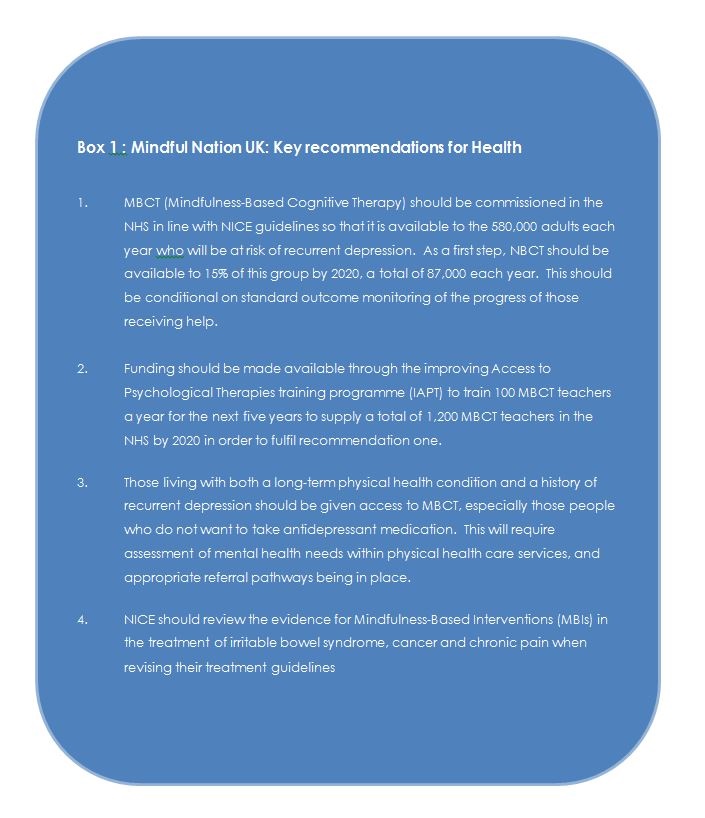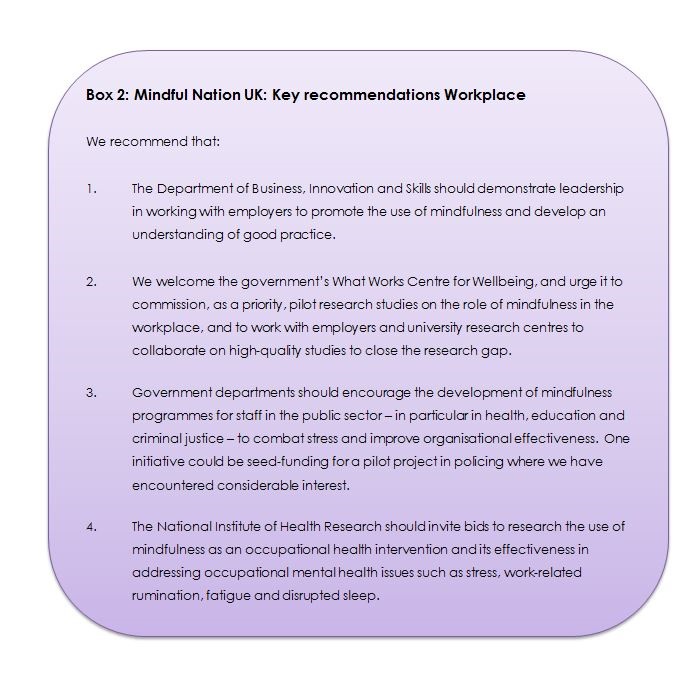19.11.15
Mainstreaming mindfulness
Source: NHE Nov/Dec 15
 Eve Piffaretti, partner at Blake Morgan LLP, on why there is a strong signal for practitioners to consider mindfulness as an alternative approach to early intervention to prevent and combat mental ill-health.
Eve Piffaretti, partner at Blake Morgan LLP, on why there is a strong signal for practitioners to consider mindfulness as an alternative approach to early intervention to prevent and combat mental ill-health.
Mindfulness has received considerable press and public attention, not only as a potential means of improving people’s mental health and wellbeing but also as a form of treatment for people with mental ill-health problems.
The Mental Health Foundation has suggested that mindfulness practice should become widely available in hospitals, schools, prisons and the workplace, and this has recently been endorsed by the Mindfulness All Party Parliamentary Group in its ‘Mindful Nation UK’ report.
Four distinct areas where mindfulness could play a major role are identified: health, education, the workplace and the criminal justice system. Recommendations have been made to the government on how to develop provision further in these four key areas.
Making it national policy
The report recommends that the government should give serious consideration to mainstreaming mindfulness, by making it part of national public health policy. The benefits of mindfulness-based cognitive therapy are explored and emphasised, given its potential to help many people to better health. There are predicated cost savings due in the nature of the treatment itself, which avoids prescription of costly medicines and the easing of strain on the NHS by avoiding deterioration in people’s health to the point where they require clinical intervention from mental health services.
Mainstreaming mindfulness in this way also complements the approach taken by the Care Act 2014 (the Act) and the guiding principles set out in the Mental Health Act 1983 Code of Practice for England (2015) (the Code) by promoting wellbeing and prevention and seeking to maximise people’s independence.
The principle at the core of the Act, now at the heart of the care and support system in England, is the promotion of wellbeing. Local authorities must promote wellbeing when carrying out any of their care and support functions in respect of people. The Act also sets out the areas that wellbeing relates to, as well as further matters that local authorities should consider in promoting wellbeing – with the starting point being that an individual is best-placed to judge their own wellbeing.
The Code provides statutory guidance for nurses, medical practitioners and other professionals in relation to the medical treatment of patients suffering from mental disorders. There are five overarching principles set out in the Code that should always be considered when making decisions in relation to care, support or treatment provided under the Mental Health Act 1983. This includes the principle of least restrictive option and maximising independence. This Code is clear that where someone can be treated safely and lawfully without detention they should not be detained. Wherever possible, the focus should be on promoting the person’s recovery and independence. The Code also states that this means that commissioners, providers and others should work together to prevent mental health crises and, where possible, reduce the use of detention through prevention and early intervention by commissioning a range of services that are accessible, responsive and as high quality as other health emergency services.
No legal barrier
There is no apparent legal barrier that prevents mindfulness being prescribed as a form of treatment for mental ill-health. The Mental Health Act 1983 defines medical treatment for mental disorder to include nursing, psychological intervention and specialist mental health habilitation (and rehabilitation) and care the purpose of which is to alleviate, or prevent the worsening of, the mental disorder or one or more of its symptoms or manifestations. This definition is inclusive, not exhaustive, and includes interventions that are not ordinarily considered to be ‘medical’. This means mindfulness is more than capable of taking its place as a prescribed model of care for prevention, early intervention and to avoid deterioration of people’s mental ill-health to the point where detention or crisis intervention from mental health services is required.


Tell us what you think – have your say below or email [email protected]